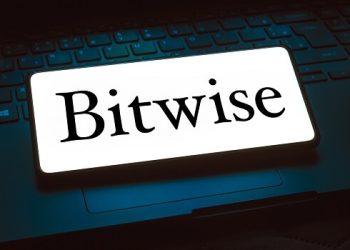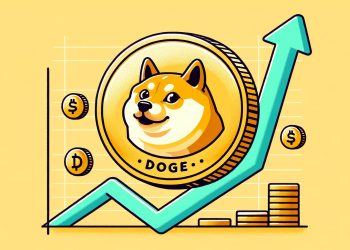Kraken is a fully functional crypto exchange platform with low transaction fees and almost sixty coins. It has regularly added new coins to its platform – bitcoin cash in August 2017; Ocean Protocol (OCEAN) and Energy Web Token (EWT) added in March 2021.
Kraken is one of the largest and oldest exchanges and one of the few U.S. crypto exchange platforms to provide advanced trading tools like margin. Kraken has five main investment options: crypto assets, fiat assets, futures trading, margin trading, and over-the-counter (OTC) trading.
Kraken aims to be the best and most secure platform. Read on for our comprehensive Kraken review to discover its pros and cons and if it’s the right trading platform for you.
History of Kraken
Launched just two years after Bitcoin itself, Kraken is a fully established crypto exchange platform with top-notch security, lower trading fees, and a range of available cryptos. It enables Kraken users to stake or loan out their coins for rewards.
Kraken was founded in July 2011 and eventually emerged as a platform to reduce the bitcoin market’s dependency on a single exchange. Jesse Powell, the founder and CEO of Kraken offered assistance to Mt. Gox, which accounted for around seventy percent of all bitcoin trades between April 2013 and early 2014, following two hacks in 2013.
Powell later launched the beta version of Kraken, and the startup began to expand in San Francisco’s Bay Area, one of the technological centers of the world.
Who Should Use Kraken
Kraken is an excellent choice for newbies just getting into the world of crypto trading. It is highly recommended due to its high-grade security protocols, low transaction fees, and wide support for different cryptocurrencies. Nonetheless, investors are advised not to stay on the beginner status for too long to avoid losing vast amounts of invested funds to fees on its training wheels platform.
An experienced trader may also benefit from Kraken’s wide range of coins, margin offerings, and staking. In fact, margin offerings are what set Kraken apart from many other popular crypto exchanges out there. While margin offerings and staking have been recently restricted to U.S. investors with very large amounts of assets, it remains open to investors outside of America. Advanced American traders can still take advantage of Kraken’s large amount of cryptocurrency trading markets and increasingly low fees as trading volume increases.
Yet, investors need to be careful when trading on Kraken or any other platform. Don’t invest funds you can’t afford to lose.
Main Features of Kraken
Kraken offers a trading platform with advanced features for individual cryptocurrency enthusiasts as well as large trading firms. It has a variety of available services (OTC trading, Margin trading, account management, etc.) and Kraken account types that cover the needs of all kinds of traders and investors. Let’s dive in.
Security
Kraken is fully committed to securing its platform and has taken many steps to this effect. As a result, it ranks highly on CER, a website that reviews the security levels of exchange platforms.
Kraken undergoes a regular audit to prove that it has the full reserves of cryptocurrency to back up its operations and was the first to provide a cryptographically verified proof of reserves following the Mt. Gox implosion.
Kraken offers safe coin storage, with 98% of deposits held offline in geographically distributed cold storage. Its servers are kept in secure cages under 24/7 surveillance by armed guards and video monitors. It also encrypts all sensitive contact information and regularly engages in vulnerability testing of its own system.
Kraken offers two-factor authentication. It recommends setting up a Master Key to still recover your account if you lose access to your login details or prevent a password reset if a hacker gains access to your account.
Kraken exchange also advises enabling the Global Setting Lock (GSL) if you plan to hold your crypto assets on the Kraken platform for a long time. While GSL is enabled, no changes can be made to your account setting, and hackers will be unable to add new withdrawal addresses or change the email address associated with the account.
PGP can also be set up within your email as an extra layer of security to ensure that all communications from Kraken are genuine and are not phishing links.
Unlike many other cryptocurrency exchanges out there, Kraken has never been hacked. However, in May 2017, Kraken and the bitcoin exchange Poloniex were hit with Distributed Denial of Service (DDoS) attacks, leading to huge losses for market participants.
Additionally, to encourage white hat hackers to disclose and help patch vulnerabilities in the site, Kraken offers a bug bounty with a discretionary reward based on the severity of the issue.
Convenience
Kraken’s popularity is also due to its ease of use. While the Instant Buy feature can be expensive for newbies, user verification is automated and done in a matter of minutes for most user types (Kraken has four).
Tier 1 permits you to trade solely in digital currencies, restricting the use of fiat currencies for deposits or withdrawals. Tier 2 eases the restrictions on fiat currencies, allowing you to withdraw $2,000 per day and $10,000 per month, depending on which country you are located in. Both Tier 1 and 2 can be verified within an hour. The highest tier, Pro, requires the manual review of KYC documents, which may take several days to complete. Verification for Tiers 3 and 4 may take anywhere between one to five days, as it is not automated like for the lower tiers.

The Kraken transaction fees depend on various factors, including the total cost of your order, the currency pairs you are trading, your 30-day trading volume, and whether your order is maker or taker. Moreover, if you are margin trading, two further fees are applicable — the opening and rollover fees.
The home screen indicates what transaction fee you will pay and what fee you can expect if your trading volume rises to a specific amount.
To withdraw funds, you need to pay a fee dependent on which cryptocurrency you want to withdraw.
Finally, the Kraken app is now available in the USA, except for Washington and New York. Although the new app does not support credit or debit card deposits, you can use your bank account as a payment method. There is also support for Instant Buy.
Margin Trading
Kraken is one of the best places to margin trade and has offered this feature since May 2015. Margin trading allows you to amplify your gains (as well as losses), with Kraken offering 5:1 leverage for pairs like BTC-EUR and ETH-XBT and 2:1 for XMR-EUR and USDT-USD Coin.
The margin feature is useful for advanced traders, who can borrow funds to open a position bigger than their account balance and potentially increase their profits if the market moves in their favor. On the other hand, it can result in huge losses for investors when prices drop abruptly.
Users have to pay rollover and opening margin fees. Opening fees are anywhere between 0.01% and 0.02%, depending on the base currency. On the other hand, rollover fees are fees for maintaining or holding on to your trading position. They are applied every four hours and cost anywhere between 0.01% to 0.02%, with the base currency being the primary determinant.
In addition to margin trading, you can stake select coins at Kraken to receive rewards when Kraken uses those coins to verify transactions for proof-of-stake currencies.
Conclusion
Kraken is among the most popular virtual currency trading platforms: it has margin and futures trading, various security features, and support for a big pool of cryptocurrencies.
Kraken has an excellent reputation, and customers can be confident the exchange will do its due diligence before adding more cryptocurrencies.
On the other hand, Kraken can be quite difficult for newbies – with so many coins and so much functionality; beginners will find it difficult to adjust. The limited starter account (Tier 1), slow account funding, and unsatisfactory customer support are other minor drawbacks of the exchange.

















